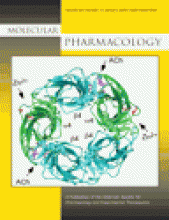Abstract
Nonsteroidal anti-inflammatory drugs (NSAIDs) exert anti-inflammatory, analgesic, and antipyretic activities and suppress prostaglandin synthesis by inhibiting cyclooxygenase, an enzyme that catalyzes the formation of prostaglandin precursors from arachidonic acid. Epidemiological observations indicate that the long-term treatment of patients suffering from rheumatoid arthritis with NSAIDs results in reduced risk and delayed onset of Alzheimer's disease. In this study, we investigated the therapeutic potential for Alzheimer's disease of mefenamic acid, a commonly used NSAID that is a cyclooxygenase-1 and 2 inhibitor with only moderate anti-inflammatory properties. We found that mefenamic acid attenuates the neurotoxicities induced by amyloid β peptide (Aβ)1–42 treatment and the expression of a Swedish double mutation (KM595/596NL) of amyloid precursor protein (Swe-APP) or the C-terminal fragments of APP (APP-CTs) in neuronal cells. We also show that mefenamic acid decreases the production of the free radical nitric oxide and reduces cytochrome c release from mitochondria induced by Aβ1–42, Swe-APP, or APP-CTs in neuronal cells. In addition, mefenamic acid up-regulates expression of the antiapoptotic protein Bcl-XL. Moreover, our study demonstrates for the first time that mefenamic acid improves learning and memory impairment in an Aβ1–42-infused Alzheimer's disease rat model. Taking these in vitro and in vivo results together, our study suggests that mefenamic acid could be used as a therapeutic agent in Alzheimer's disease.
- The American Society for Pharmacology and Experimental Therapeutics
MolPharm articles become freely available 12 months after publication, and remain freely available for 5 years.Non-open access articles that fall outside this five year window are available only to institutional subscribers and current ASPET members, or through the article purchase feature at the bottom of the page.
|






